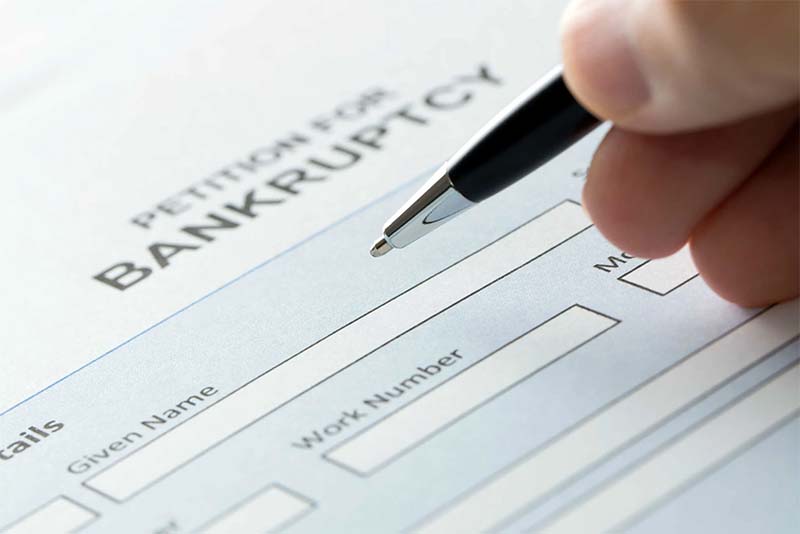Have you considered filing for Chapter 7 bankruptcy?
When Chapter 7 cases are filed correctly, they result in a successful discharge of debts more than 99% of the time. [1]
However, there are some reasons a Chapter 7 bankruptcy application might be denied.
Previous Bankruptcies
If an individual has filed for bankruptcy in the past and their case was dismissed or denied, it could affect their eligibility for Chapter 7 bankruptcy. The Bankruptcy Code has specific criteria regarding the timing of filing for bankruptcy after a previous case. If a person previously received a discharge in a Chapter 7 bankruptcy, they must generally wait eight years before filing another Chapter 7 case.
The court will deny a discharge in a later Chapter 7 case if the debtor received a discharge under Chapter 7 or Chapter 11 in a case filed within eight years before the second petition is filed. [2]

In some cases, individuals who have been denied in the past may still be eligible for Chapter 13 bankruptcy, which involves a repayment plan, rather than a full discharge of debt.
Improper Filing
Bankruptcy paperwork is extensive and can be complex, and any mistakes or omissions can lead to the denial of the bankruptcy petition. Improper filing can encompass a variety of issues, including incomplete or inaccurate paperwork, failure to disclose all assets and liabilities, and failure to meet the eligibility requirements for Chapter 7 bankruptcy.
Failing to disclose all assets and liabilities can raise concerns about the applicant’s honesty and may result in the denial of the bankruptcy petition. Hiring an experienced bankruptcy attorney is advised.
Failing the Chapter 7 Means Test
The means test is used to determine an individual’s eligibility for Chapter 7 bankruptcy by evaluating income and expenses. The test takes into account various factors, such as household size, monthly income, and allowable expenses. If an individual’s income is above a certain threshold and they have the means to repay their debts, they may not pass the means test and could be denied Chapter 7 bankruptcy.
For those who fail the means test and are denied Chapter 7 bankruptcy, there are still options available. One alternative is to consider filing for Chapter 13 bankruptcy, which involves creating a repayment plan to pay off debts over a period of three to five years. Another option is to seek credit counseling and financial management assistance to improve financial stability and manage debt.
Dishonesty and Fraud
When individuals file for Chapter 7 bankruptcy, they are required to provide accurate and complete information about their financial situation. This includes details about their income, assets, debts, and expenses. If an individual fails to disclose all of their assets or provides false information to the bankruptcy court, their bankruptcy case may be denied.
Dishonesty and fraud can take many forms when it comes to bankruptcy filings. Some individuals may attempt to conceal assets by transferring them to family members or friends before filing for bankruptcy.
Others may inflate their expenses or understate their income in an effort to qualify for Chapter 7 bankruptcy when they actually have the means to repay their debts. Individuals may simply fail to disclose certain assets or sources of income in an attempt to shield them from the bankruptcy process.
The consequences of dishonesty and fraud in bankruptcy filings can be severe. Not only can individuals face the denial of their bankruptcy case, but they may also be subject to legal penalties, including fines and even criminal prosecution. Their creditors may challenge the discharge of their debts, leading to prolonged and costly legal battles.

Failure to Attend Credit Counseling
One common reason why Chapter 7 bankruptcies are denied in Michigan is due to the failure to attend credit counseling. If an individual does not complete this requirement, the bankruptcy court may reject their petition.
Failure to attend credit counseling may occur for a variety of reasons. Some individuals may simply forget to schedule the counseling session, while others may not fully understand the importance of this requirement. Some individuals may face barriers such as transportation or financial constraints that prevent them from completing the counseling.
By attending the counseling sessions, individuals can gain valuable knowledge about managing their finances and explore alternatives to bankruptcy. Completing this requirement is necessary in order to move forward with the bankruptcy process.

Contact Frego Law bankruptcy attorneys today to schedule a consultation and take the first step toward resolving your denied Chapter 7 bankruptcy.
FAQs
In Michigan, there are income limitations that impact Chapter 7 bankruptcy eligibility. The means test is used to evaluate a debtor’s income and expenses to determine if they qualify for Chapter 7 bankruptcy. Individuals whose income falls below the state median income for their household size typically meet the income eligibility requirements. Those whose income exceeds the state median may undergo further scrutiny to assess their ability to repay debts.
The timing and magnitude of the income increase may be examined by the bankruptcy court to determine if it was an attempt to manipulate eligibility requirements. A sudden rise in income could affect a debtor’s qualification for Chapter 7 bankruptcy, which is based on income levels, or lead to adjustments in the terms of a Chapter 13 repayment plan.
If a person possesses significant assets that are not exempt under bankruptcy laws, it may impact their eligibility for a Chapter 7 bankruptcy, which involves liquidating assets to settle debts. Having valuable assets doesn’t automatically result in denial; the determination depends on various factors, including the type and value of the assets, applicable exemption laws, and the debtor’s overall financial situation.
Sources:
[1] How Often Are Chapter 7 Bankruptcies Denied? (2022, August 30). Pocketsense. https://pocketsense.com/chapter-7-bankruptcies-denied-8092510.html
[2] Discharge in Bankruptcy – Bankruptcy Basics. (n.d.). United States Courts. https://www.uscourts.gov/services-forms/bankruptcy/bankruptcy-basics/discharge-bankruptcy-bankruptcy-basics




